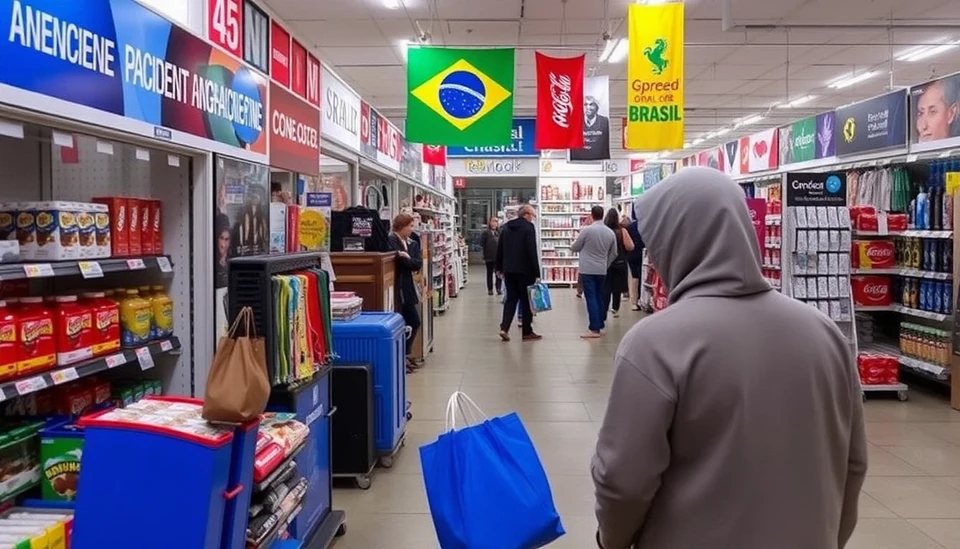
Brazilian retail sales have seen a significant downturn, prompted by soaring borrowing costs that are squeezing consumer spending. This trend marks a continuing struggle for the nation’s economy as high interest rates persist, undermining optimism about economic growth.
Recent statistics indicate that retail trade in Brazil fell by 0.6% in November 2024 compared to the previous month, following a downward trend as the effects of elevated borrowing costs become more pronounced. Analysts attribute this contraction to the central bank's strict monetary policy, which has maintained a steady high-interest rate to combat persistent inflation.
The financial strain on consumers has drastically reduced their purchasing power, leading to a decline in expenditures on various goods, particularly in sectors heavily reliant on credit like furniture, appliances, and automobiles. This lack of consumer confidence reflects broader concerns regarding the sustainability of Brazil's economic recovery.
Despite previous signs of recovery in the economy, the relentless rise of borrowing costs has eroded the gains made in earlier months. Economists express caution, noting that if the current trend continues, it could lead to further economic stagnation, exacerbating issues for both households and businesses. The price hikes on loans and credit cards have left many consumers in a tight spot, triggering a pullback in spending.
In response to these challenges, retail associations have started to advocate for measures that would alleviate financial pressures on consumers, emphasizing the need for an adjustment in interest rates. They highlight that without a favorable monetary policy shift, Brazil may struggle to see a resurgence in retail activity, which is often considered a barometer of the nation’s economic health.
Looking ahead, the outlook for Brazilian retail remains uncertain. With global economic conditions also fluctuating, the interplay between domestic policies and international economic dynamics will be crucial for the sector's recovery. Many are left wondering whether consumer confidence can be restored and spending can rebound as we progress into 2025.
As the situation continues to evolve, economists and industry leaders will be closely monitoring the actions taken by Brazil's central bank and the government to combat the effects of rising interest rates on both consumers and the broader economy.
In conclusion, while the Brazilian economy had shown promise, the latest data on retail sales suggests that substantial challenges remain. Policymakers will be under pressure to implement strategies that can bolster consumer spending and stimulate growth in the retail sector, which is essential for the overall health of Brazil's economy.
#BrazilRetail #EconomicNews #ConsumerSpending #InterestRates #RetailSales #EconomicRecovery #BrazilEconomy #InflationIssues #2025Outlook
Author: Rachel Greene




